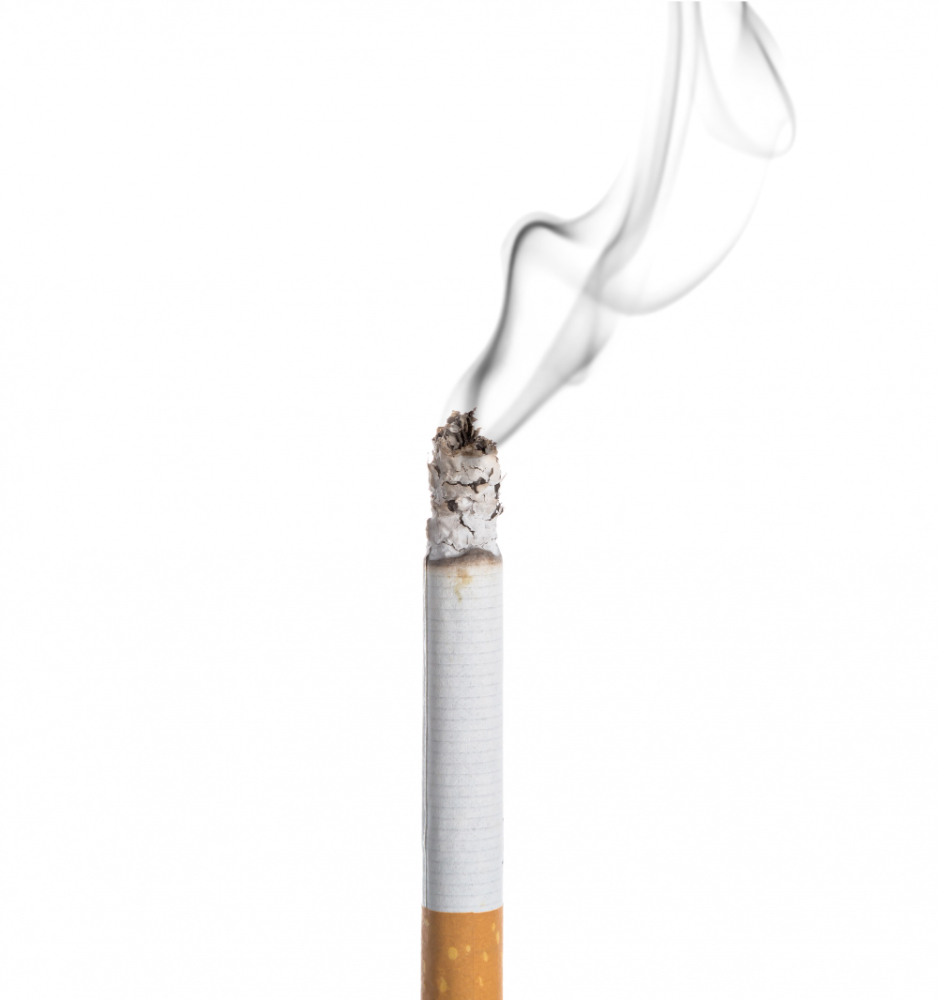
Smoking, a global health issue, plays a significant role in millions of diseases and deaths annually. The use of tobacco is associated with many types of cancers, cardiovascular and respiratory diseases, and other severe conditions affecting different body organs.
This blog will discuss how smoking and fertility are related in men and women. It discusses how smoking reduces male and female fertility rates and success rates of IVF and other assisted reproductive technology (ART). It also discusses how smoking and secondhand smoke cause pregnancy complications, putting the life of the mother and fetus at risk.
Effects of Smoking on Male and Female Fertility and IVF Success Rates: Smoking and Fertility Issues in Women
Smoking can damage the DNA (deoxyribonucleic acid) in eggs. Much research on the smoking effects on the reproductive health of females has observed a correlation between increased chances of diminished ovarian reserve in women with a history of heavy smoking. As ovarian reserve indicates the number of healthy eggs in a woman’s ovary, its decline suggests low fertility.
Further, cigarette smoke carries chemicals such as nicotine, carbon monoxide, and cyanide that can disrupt the production of hormones responsible for the menstrual cycle and ovulation. These chemicals can also accelerate the loss rate of eggs.
Eggs that die off do not get regenerated or replaced. Thus, we can say that smoking and infertility in women are correlative, as a declining ovarian reserve speeds up menopause in women smokers by 1–4 years compared to non-smokers.
These are how smoking and fertility correlate in women undergoing Assisted Reproductive Technology (ART) and other fertility treatment cycles:
- The rate of implantation and ongoing pregnancy in women who smoked reduced by ~50% compared to non-smoker women.
- Women who gave up smoking before the treatment cycle experience a pregnancy rate the same as those of non-smokers.
The relationship between smoking and pregnancy complications in women is as such:
- The relative risk of miscarriage increases by 1% for each cigarette a day.
- Smoking also leads to complications such as abnormal bleeding during pregnancy and delivery, placenta previa, ectopic pregnancy, premature rupture of membranes, and placental abruption.
Effects of Smoking on Male and Female Fertility and IVF Success Rates: Smoking and Fertility Issues in Men
Studies have observed that smoking leads to DNA damage and increased seminal oxidative stress in men. These conditions reduce sperm production, motility, and fertilizing capacity and affect sperm normal forms. A major correlation between smoking and infertility in men is that sperm motility in male smokers is reduced by 13% compared to non-smoker men.
Elevated oxidative stress, cell apoptosis, and DNA damage are other smoking effects on the reproductive health of men. These conditions are observed to cause reproductive hormone system dysfunction and reduce semen quality. They also impair spermatozoa function, spermatogenesis, and sperm maturation in men.
Smoking can also initially raise and later reduce testosterone levels in men. These abnormal levels of testosterone result in erectile dysfunction (ED), decreased libido, and low sperm count in male smokers. Further, a man experiences ED as blood flow to the penis gets damaged due to smoking. Smoking can also lead to underlying health conditions for ED, such as type 2 diabetes and heart disease.
Effects of Smoking on Male and Female Fertility and IVF Success Rates: Assisted Reproductive Technologies (ART), Smoking and Infertility
Smoking can reduce the effectiveness of in vitro fertilization (IVF) treatments and the pregnancy rate. This is because of very few mature oocytes. This happens due to the altered local angiogenesis due to impaired vascular endothelial growth factor secretion. Smoking during IVF treatments can also result in abnormally thick zona pellucida (ZP) and low rates of fertilization and pregnancy.
Also read: IVF (In Vitro Fertilization) : Step By Step IVF Procedure
Another important point to discuss regarding smoking and fertility during ART is the negative outcomes of intra-cytoplasmic sperm injection (ICSI)/IVF treatments. Smoking during these treatments can lower rates of fertilization, pregnancy, and live births.
The correlation between smoking and pregnancy complications like ectopic pregnancies or miscarriages is another major adversity to keep in mind if you use cigarettes and are planning to undergo ART. Many studies have observed that smokers need double the number of ART cycles for non-smokers while attempting IVF.
We, at Credence IVF Hospital, strongly recommend you undergo smoking cessation before attempting fertility treatments. More than half of the women who smoke before conceiving usually stop smoking during or directly before pregnancy.
It is generally not advised to use nicotine replacements or prescription medicines like bupropion to improve your rate of quitting smoking during pregnancy. But you can discuss the risks and benefits of these with your healthcare provider and reach a decision.
Quitting the use of cigarettes benefits an expecting mother and her fetus the most when the cessation is done at least 15 weeks before gestation. Yet, if you are a smoker who is pregnant, you can practice smoking cessation at any point in your pregnancy to benefit your and your fetus’s health.
Smoking and Fertility: Effects of Secondhand Smoke on Fertility
While discussing smoking effects on the reproductive health, it is equally essential to discuss the harm that exposure to secondhand smoke can do to non-smoking individuals. While smoking and infertility in smokers directly correlate, non-smoking women exposed to any rate of secondhand smoke still experience a huge risk of delayed conception.
Though these women don’t smoke themselves, secondhand smoke makes them vulnerable to all the health risks suffered by women who smoke. They also experience a delay of over six months for conception compared with their non-smoking counterparts.
Discussions on smoking and pregnancy complications are also relevant when it comes to the effect of secondhand smoke on pregnant women. Secondhand smoke or passive smoking reduces the oxygen availability to the fetus. As a result, fetal heart rate may increase, and the baby would have a premature birth with a low birth weight.
Further, while discussing the effects of secondhand smoke under smoking and fertility, it is important to emphasize that pregnant women getting exposed to such smoking still experience an 11% increase in their risk of miscarriage.
Smoking Cessation and Fertility Improvement: Benefits of Quitting Smoking on Fertility
While discussing smoking cessation and fertility improvement, it is essential to note that several studies have improved fertility parameters in smokers after they have quit smoking. Adverse effects of smoking on male and female fertility and IVF success rates have also been observed to diminish with smoking cessation.
Men who quit smoking experience positive effects such as improved semen volume, sperm concentration, and total sperm count. However, the positive changes to sperm morphology and sperm motility are not statistically significant.
Smoking effects on the reproductive health of women also become less significant with the cessation of smoking. However, a decrease in ovarian reserve cannot be reversed even when women quit smoking. Still, women experience smoking cessation and fertility improvement in many other ways.
Smoking and pregnancy complications also need to be discussed in light of smoking cessation. The longer a person avoids smoking, the lower the pregnancy complication rate will be in her.
While helping people to quit smoking, it is not enough to share website addresses or educational materials. A person is to be made aware of the effects of smoking on male and female fertility and IVF success rates through other methods of intervention.
Infertile women should receive help for smoking cessation by being educated about the correlation between smoking and fertility. They should be given encouragement and comprehensive counseling during their clinic visits based on their individual stages of readiness for smoking cessation.
Also read: Infertility Myths & Facts
Smoking and Fertility: Conclusion
Cigarette smoking is a lifestyle factor that can negatively influence fertility in men and women. The blog discusses the topic of smoking and fertility in different contexts, such as the effects of smoking on male and female fertility and IVF success, smoking and pregnancy complications, smoking cessation and fertility improvement, and more.
As the research interest in the correlation between smoking and fertility grows, we encourage our readers to quit smoking to improve their reproductive health. To know more about your infertility and its causes and treatment options, contact us for a thorough consultation with some of our best infertility doctors. Contact us or write to us at:
- Phone: + 91 471 403 3333
- Email ID: info@credenceivf.com.
Also read: Infertility Explained: Types, Causes, Symptoms, Diagnosis and Treatment Options
Frequently Asked Questions on Smoking and Fertility
- How long will it take for female fertility to improve once a woman quits smoking?
Smoking cessation and fertility improvement in women happen in a matter of a few months. Some studies suggest that women may have similar chances of conception to non-smokers within two months and improved egg quality after about three months.
- Is it possible for me to get pregnant if my husband smokes cigarettes?
Yes, you can still get pregnant even if your husband smokes cigarettes. Though smoking does not prevent pregnancy completely, it can affect sperm quality and hence male fertility. So, if your husband is a smoker, it can reduce your chances of conception.
- How long prior to getting pregnant should I stop smoking?
You should ideally stop smoking 3-4 months before conceiving. This can optimize the chances of a healthy pregnancy. However, it is still beneficial to quit smoking at any point while you are pregnant.
- During which trimester do smoking and pregnancy complications happen the most?
Tobacco smoke causes the most harm to fetal growth during the third trimester. So, it is strongly advised to quit smoking later in the second trimester.



